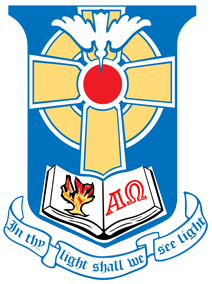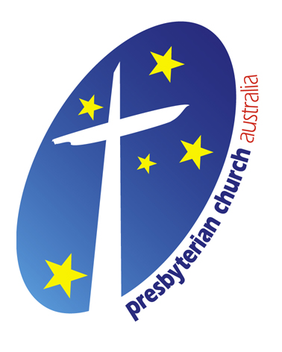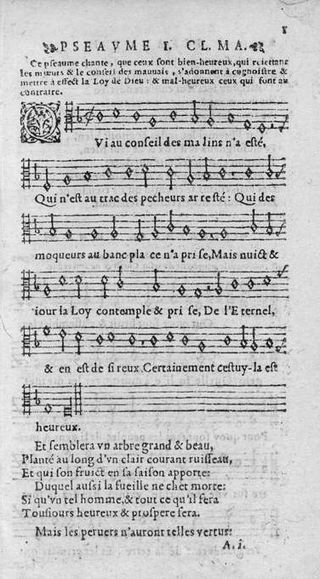History
The revolution caused by the discovery of gold in 1851, brought more ministers and a vastly increased population. The three Presbyterian divisions then existing in Australia – representing the Established, Free and United Presbyterian Church of Scotland streams – achieved union over the years 1859/1865. Sections of the latter two streams remained apart, the Free because of the practical compromise considered to be involved in the united body receiving ministers from the different streams, despite the Free Church of Scotland policy from 1858 being in favour of colonial unions. It was considered that diversity of view at this point established an attitude which would lead to diversity on other points at the very heart of the faith. There was also concern that toleration of a view point found among United Presbyterians could lead to the secular ideal of the state, which indeed developed in the 20th century. The PCEA became a very active body, although short of ministers until 1853.
Seven of the 22 PCEA ministers in November 1864 stayed out of the union. Most early PCEA members were Highland Scots or conservative Irish Presbyterians. The PCEA grew to 12 ministers within a few years of 1864, despite the death of early leaders, but suffered a serious schism in 1884 over the training of students. This was not healed until the 20th century, and much ground was lost. A section of the Brushgrove-Grafton congregation was not reconciled and joined the Free Presbyterian Church of Scotland in 1911. [The descendants of this group have a church in Grafton and another in Riverstone (Sydney).] Additionally there was no recognition by the Free Church of Scotland from 1864 until after 1900, when close relations were resumed with the section that stayed outside the union which formed the United Free Church of Scotland in 1900. There was a painful dispute in the 1970s which led to a minister who made exaggerated claims for the King James Version of the Bible being removed in 1979. The repercussions contributed to several ministers joining the Presbyterian Church of Australia. The New International Version (1984) or the New King James Version are the most generally used translations at present. Of recent times the church has been stable with increasing diversity of ethnic origins represented in its membership and ministerial ranks. Until recent years the membership was largely outside major cities. Currently (2017) about 60% of the following is in the capital cities of Brisbane, Sydney and Melbourne.
Organisation
The PCEA’s supreme assembly is a Synod which meets annually hosted by one of the congregations. The PCEA has a long-standing arrangement enabling ready interchange of ministers with the Free Church of Scotland, and is a member of the International Conference of Reformed Churches (ICRC). More recently, interchange of ministers with the Reformed Churches of New Zealand (2006) and with the Orthodox Presbyterian Church in the US (2007), both also ICRC members, has been approved. The PCEA does not operate its own theological college, but has trained ministers in the Free Church of Scotland College, Edinburgh, at the Reformed Theological College, Geelong, and, more recently, in the training institutions of the mainline Presbyterian Church, supplemented in certain subjects. In Victoria it has friendly relations with the Reformed Presbyterian Church of Australia which has congregations at Geelong, Frankston and MacKinnon, and whose presence in Australia also dates from colonial times.
The current communicant membership (31/12/2017) is about 450 with a total community of about 800. At the same date there were 11 ministers in pastoral charges and another seconded to provide leadership for Australian Indigenous Ministries (formerly Aboriginal Inland Mission). A significant work has developed among Sudanese refugees in Melbourne, with one minister from the Nuer people of South Sudan.
The main centres are:
- Northern Presbytery: Brisbane (Woolowin); Northern Rivers (Maclean, Grafton); Hastings (Wauchope, Port Macquarie)
- Central Presbytery: Manning (Taree); Hunter (Queens Avenue, Cardiff, Raymond Terrace); Sydney: St Georges, 201a Castlereagh Street, Mount Druitt, Bexley North
- Southern Presbytery: Geelong (Newcomb), Melbourne - Knox (Wantirna), All Nations (Mulgrave); Carrum Downs; Narre Warren; Ulverstone, Tasmania

Presbyterianism is a Reformed (Calvinist) Protestant tradition named for its form of church government by representative assemblies of elders. Though there are other Reformed churches that are structurally similar, the word Presbyterian is applied to churches that trace their roots to the Church of Scotland or to English Dissenter groups that formed during the English Civil War.

The Presbyterian Church (USA), abbreviated PCUSA, is a mainline Protestant denomination in the United States. It is the largest Presbyterian denomination in the country, known for its liberal stance on doctrine and its ordaining of women and members of the LGBT community as elders and ministers. The Presbyterian Church (USA) was established with the 1983 merger of the Presbyterian Church in the United States, whose churches were located in the Southern and border states, with the United Presbyterian Church in the United States of America, whose congregations could be found in every state.
Presbyterianpolity is a method of church governance typified by the rule of assemblies of presbyters, or elders. Each local church is governed by a body of elected elders usually called the session or consistory, though other terms, such as church board, may apply. Groups of local churches are governed by a higher assembly of elders known as the presbytery or classis; presbyteries can be grouped into a synod, and presbyteries and synods nationwide often join together in a general assembly. Responsibility for conduct of church services is reserved to an ordained minister or pastor known as a teaching elder, or a minister of the word and sacrament.

The Uniting Church in Australia (UCA) was founded on 22 June 1977, when most congregations of the Methodist Church of Australasia, about two-thirds of the Presbyterian Church of Australia and almost all the churches of the Congregational Union of Australia united under the Basis of Union. According to the church, it had 243,000 members in 2018. In the 2016 census, 870,183 Australians identified with the church, but that figure fell to 673,260 in the 2021 census. In the 2011 census, that figure was 1,065,796.

The Presbyterian Church in America (PCA) is the second-largest Presbyterian church body, behind the Presbyterian Church (USA), and the largest conservative Calvinist denomination in the United States. The PCA is Reformed in theology and presbyterian in government.

The Associate Reformed Presbyterian Church (ARPC) is a theologically conservative denomination in North America.The ARPC was formed by the merger of the Associate Presbytery (seceder) with the Reformed Presbytery (covenanter) in 1782. It is one of the oldest conservative denominations in the United States.

The Free Presbyterian Church of Scotland was formed in 1893. The Church identifies itself as the spiritual descendant of the Scottish Reformation. The Church web-site states that it is 'the constitutional heir of the historic Church of Scotland'. Its adherents are occasionally referred to as Seceders or the Wee Wee Frees. Although small, the church has congregations on five continents.

The Presbyterian Church in Canada is a Presbyterian denomination, serving in Canada under this name since 1875. The United Church of Canada claimed the right to the name from 1925 to 1939. According to the Canada 2021 Census 301,400 Canadians identify themselves as Presbyterian, that is, 0.8 percent of the population.

The Presbyterian Church of Australia (PCA), founded in 1901, is the largest Presbyterian denomination in Australia. The larger Uniting Church in Australia incorporated about 70% of the PCA in 1977.
The Evangelical Presbyterian Church is a small Australian Reformed Christian denomination. In September 2010 it had five centres: Brisbane; Londonderry (Sydney); Cohuna, Victoria ; Launceston and Winnaleah (Tasmania) with until 2014 a small school at Herrick near Winnaleah.

James Forbes was a Scottish-Australian Presbyterian minister and educator. He founded the Melbourne Academy, later Scotch College.

Exclusive psalmody is the practice of singing only the biblical Psalms in congregational singing as worship. Today it is practised by several Protestant, especially Reformed denominations. Hymns besides the Psalms have been composed by Christians since the earliest days of the church, but psalms were preferred by the early church and used almost exclusively until the end of the fourth century. During the Protestant Reformation, Martin Luther and many other reformers, including those associated with the Reformed tradition, used hymns as well as psalms, but John Calvin preferred the Psalms and they were the only music allowed for worship in Geneva. This became the norm for the next 200 years of Reformed worship. Hymnody became acceptable again for the Reformed in the middle of the nineteenth century, though several denominations, notably the Reformed Presbyterians, continue the practice of exclusive psalmody.
William McIntyre was a Scottish-Australian Presbyterian minister and educator.

Jennings Ligon Duncan III is an American Presbyterian scholar and pastor. He is Chancellor of Reformed Theological Seminary.
The Reformed Presbyterian Church, Evangelical Synod was a Reformed and Presbyterian denomination in the United States and Canada between 1965 and 1982.
The Free Presbyterian Church of Victoria, also known as the Free Church of Australia Felix, was an Australian Presbyterian denomination founded in Melbourne, Victoria in 1846 as a result of the Disruption of 1843 in the Church of Scotland.

The Reformed Presbyterian Church of North America (RPCNA) is a Presbyterian church with congregations and missions throughout the United States, Japan, and Chile. Its beliefs—held in common with other members of the Reformed Presbyterian Global Alliance—place it in the conservative wing of the Reformed family of Protestant churches. Below the Bible—which is held as divinely inspired and without error—the church is committed to several "subordinate standards," together considered with its constitution: the Westminster Confession of Faith and Larger and Shorter Catechisms, along with its Testimony, Directory for Church Government, the Book of Discipline, and Directory for Worship.

The Reformed Presbyterian Global Alliance is a communion of Presbyterians originating in Scotland in 1690 when its members refused to conform to the establishment of the Church of Scotland. The Reformed Presbyterian churches collectively have approximately 9,500 members worldwide in Northern Ireland, the Republic of Ireland, Scotland, France, the United States of America, Canada, Japan, South Sudan, and Australia.
The Reformed Presbyterian Church in Taiwan was officially established in 1971 when the First Presbytery was formed as a result of the union of various conservative Presbyterian and Continental Reformed congregations planted by various missionary groups. Its origin could be traced back to the 1950s when the very first missionaries of those Presbyterian and Continental Reformed missionaries arrived in Taiwan.
The Kosin Presbyterian Church in Korea, also called Korea-pa, is an Evangelical Reformed and Presbyterian denomination in the Republic of South Korea. Although, congregations have spread all over North America and in many other countries.












